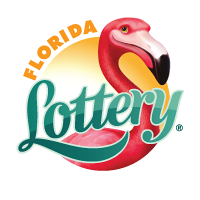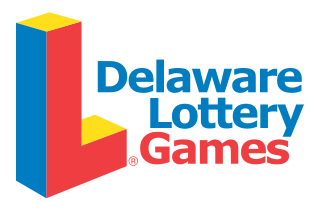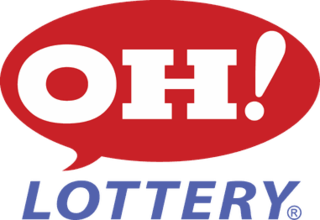Related Research Articles

The Florida Lottery is the government-operated lottery of the U.S. state of Florida. As of 2022, the lottery offers eleven terminal-generated games: Cash4Life, Mega Millions, Powerball, Florida Lotto, Pick 2, Pick 3, Pick 4, Pick 5, Fantasy 5, Cash Pop, and Jackpot Triple Play. A player must be 18 or older to play.
Tri-State Lottery is the terminal-generated game series offered by the Maine, New Hampshire, and/or Vermont lotteries. It was the first multi-jurisdictional lottery. Its first multi-state game came in September 1985. The compact includes five games: Megabucks ; Pick 3 and Pick 4, Gimme 5, and Fast Play ; the latter are games that differ among the three states.
The Maine Lottery is run by the government of Maine. It is a member of the Multi-State Lottery Association (MUSL), whose flagship game is Powerball. It was founded in 1974 after being approved through a voter referendum.
The Montana Lottery is run by the government of Montana. It is a member of the Multi-State Lottery Association (MUSL). The Montana Lottery's portfolio consists of scratch tickets, plus Mega Millions, Powerball, Lotto America, Montana Millionaire, Lucky for Life, Big Sky Bonus, Montana Sports Action, Treasure Play and Montana Cash.

The Idaho Lottery began play on July 19, 1989, and is run by the government of the state of Idaho. It is a member of the Multi-State Lottery Association (MUSL). Fifty percent of all net funds is given to public schools, while the remainder is pledged to the Permanent Building Fund, which is used as a financial resource for the state's colleges and universities.
The South Dakota Lottery is run by the government of South Dakota. It is a member of the Multi-State Lottery Association (MUSL). The Lottery is headquartered in Pierre; it is a self-funded endeavor. The minimum age to buy tickets is 18; however, video lottery players must be at least 21.
The West Virginia Lottery is run by the government of West Virginia. It was established in 1984 via a voter referendum. It is a charter member of the Multi-State Lottery Association (MUSL). The Lottery offers games such as Lotto America, Powerball, Mega Millions, and scratch tickets. West Virginia has reinterpreted the amendment to its Constitution that permitted its lottery to include casinos, and thus the West Virginia Lottery Commission also regulates slot machines, which are marketed as "video lottery" and available at several hundred businesses; and five "lottery table games" casinos.

The Connecticut Lottery Corporation, also called the CT Lottery, is the official lottery in Connecticut. It was created in 1971 by then-Gov. Thomas Meskill, who signed Public Act No. 865. The first tickets were sold on February 15, 1972. The Connecticut Lottery offers several in-house drawing games; Connecticut also participates in Mega Millions and Powerball; each are played in 44 states, the District of Columbia, and the U.S. Virgin Islands.
The Tennessee Lottery is run by the Tennessee Education Lottery Corporation (TELC), which was created on June 11, 2003, by the Tennessee General Assembly. TELC derives its legal authority from the Tennessee Education Lottery Implementation Law, which the General Assembly passed following a November 2002 Amendment to the state constitution establishing the lottery and approved by 58 percent of the voters.

The Delaware Lottery is run by the government of Delaware. Its creation was authorized by the state legislature on May 31, 1974. Its "traditional" games include Play 3, Play 4, Multi-Win Lotto, Lucky For Life, Lotto America, Mega Millions, and Powerball. Delaware also offers Keno, sports betting, and video lottery.

The Hoosier Lottery is the official state lottery of Indiana, and is the only US lottery that uses the state's nickname as its official name. It is a member of the Multi-State Lottery Association (MUSL). The Hoosier Lottery sells scratch-off tickets; its draw games include Mega Millions, Hoosier Lotto, Powerball, Cash 5, and Poker Lotto.
The Missouri Lottery is the state-run lottery in Missouri. It is a charter member of the Multi-State Lottery Association (MUSL). As of 2022, the lottery offers Powerball, Mega Millions, Cash4Life, Lotto, Show Me Cash, Pick 4, Pick 3, Cash Pop, Club Keno, scratchers, and pull-tabs. The minimum age to buy a ticket is 18.

The Nebraska Lottery is run by the government of Nebraska. It was established by the state legislature in 1993. It is a member of the Multi-State Lottery Association (MUSL). Its games include Mega Millions, Powerball, 2by2, Nebraska Pick 5, Pick 3, and MyDaY. The minimum age to purchase Nebraska Lottery tickets is 19. Elsewhere in the United States, the minimum age to buy lottery tickets is either 18 or 21.

The Ohio Lottery is a state lottery run by the Ohio Lottery Commission. Its games consist of scratch tickets; Pick 3, Pick 4, Pick 5 ; Rolling Cash 5, Classic Lotto, Keno, Lucky for Life, Mega Millions, and Powerball.

The Rhode Island Lottery is run by the government of Rhode Island. The modern form of the Rhode Island Lottery was inaugurated in 1974, following a constitutional amendment passed in 1973. It is a charter member of the Multi-State Lottery Association (MUSL). Rhode Island Lottery games include Mega Millions, Powerball, Wild Money, Keno, and scratch tickets. The Rhode Island Lottery also offers online lottery games and oversees and regulates video lottery as well as sports betting.

The Illinois State Lottery is an American lottery for the U.S. state of Illinois, operated by Camelot Illinois.
The Wisconsin Lottery is run by the Wisconsin Department of Revenue and was authorized in 1988 by the state legislature. It is a member of the Multi-State Lottery Association (MUSL). Its games consist of Mega Millions, Powerball, Megabucks, Supercash!, Badger 5, Pick 3, Pick 4, All or Nothing, and scratch games. Since its founding, it has generated $4.6 billion for property tax relief for state residents.

The Colorado Lottery is run by the state government of Colorado. It is a member of the Multi-State Lottery Association(MUSL).
The Arkansas Scholarship Lottery is run by the government of Arkansas.
The Vermont Lottery began fiscal operations as an enterprise fund in October 1977, following a 1976 referendum, and the enactment of Public Act No. 82 by the 1977 General Assembly. It is run by the Vermont Lottery Commission, which is headquartered in Berlin. Along with Maine and New Hampshire, Vermont is a member of the Tri-State Lottery.
References
- ↑ "Oklahomans show two sides in election". KFOR: kfor.com. Retrieved 2007-04-08.
- ↑ "Home | Oklahoma Lottery".
- ↑ Chad Previch (2007-06-28). "$105 million ticket bought in Roland". Oklahoman. Retrieved 2007-06-28.
- ↑ "Update: Muldrow couple claims the big Powerball prize". Tulsa World. 2007-06-29. Retrieved 2007-06-29.
- ↑ Michael McNutt (2007-06-27). "Lottery officials hope new games do a number on sales". Oklahoman. Retrieved 2007-06-27.